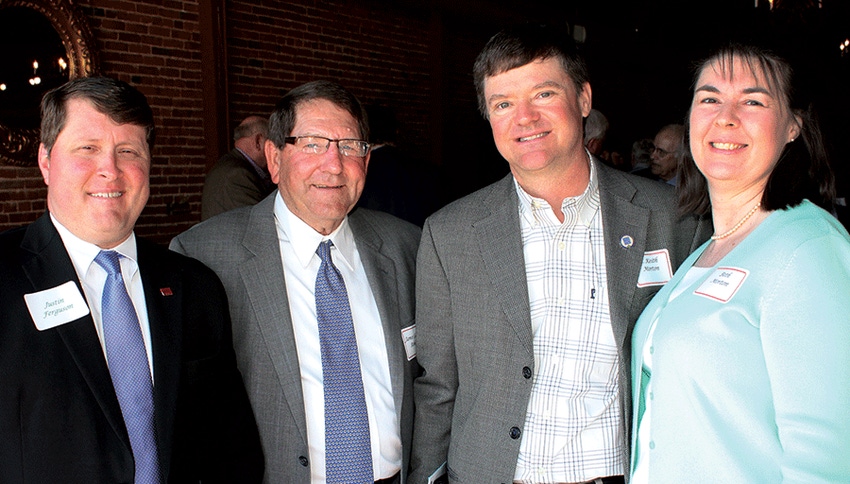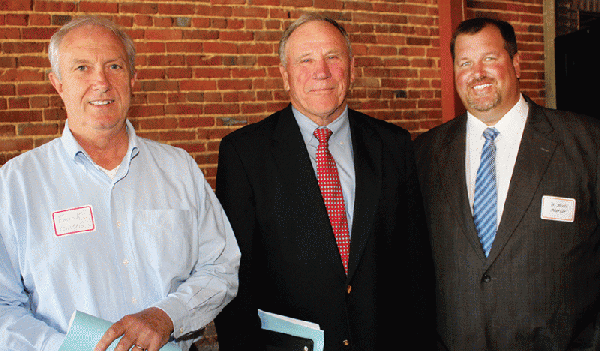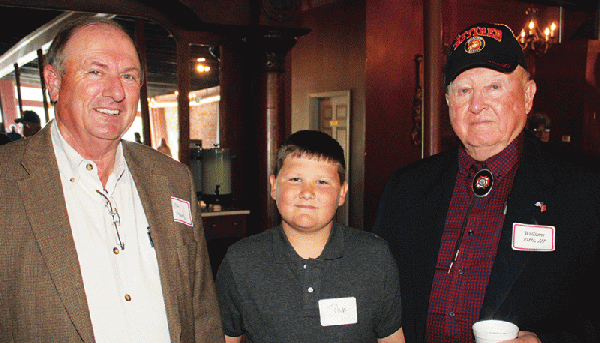
Interest rates may hold until after presidential election
"The USDA is telling us that this fall all the grain bins are going to be bursting at the seams, which doesn’t look that good for commodity prices — all in all, a picture of gloom and doom. The good news is that these early-in-the-year USDA forecasts are seldom right.”—Abbott Myers, Chairman, Mississippi Land Bank

Until a new president takes office, the Federal Reserve may keep interest rates at present near zero levels — good news for agricultural borrowers, says Abbott Myers, chairman of the board of the Mississippi Land Bank.
“We’re in the silly season of the 2016 presidential race,” he said at the organization’s annual stockholder meeting, “and while I think interest rates are going to have to go up, I don’t think we’ll see it until after the election is over. Janet Yellen and the Federal Reserve have pretty much painted themselves in a corner. They don’t have much wiggle room.
“At our meeting last year, I said I thought interest rates would increase slowly, a quarter percent at a time. Chairwoman Yellen bumped up the rate one time and then stopped.”
Check current commodity prices

Attending the Mississippi Land Bank annual meeting were, from left, Frank Givens, Givens Financial, Senatobia, Miss.; Travis Satterfield, Benoit, Miss., producer; and Brett Marlar, Mississippi Land Bank, Corinth, Miss.
Attending the Mississippi Land Bank annual meeting were, from left, Frank Givens, Givens Financial, Senatobia, Miss.; Travis Satterfield, Benoit, Miss., producer; and Brett Marlar, Mississippi Land Bank, Corinth, Miss.There is “a lot lot of talk about negative interest rates,” Myers says. “Japan and several countries have negative interest rates. To me, this makes putting your money under the mattress or in a tin can look pretty good. I don’t think it’s the answer for an economy, and we’re seeing a downturn in the Asian economies and some European countries.
“We’re told that we have a 2 percent to 3 percent growth rate in the U.S., but I think much of that is due to federal government spending.”
He referred to a Tax Foundation report in early April that Americans pay more in taxes each year than for food, clothing, and housing combined. “That is a worrisome statistic, he says.
And says Myers, “The strong dollar is killing our exports.”
U.S. agriculture has been strong the past few years, he notes, with high commodity prices and good demand, “but we all know agriculture is cyclical, and we knew $17.50 soybeans wouldn’t last.
“The USDA’s latest report indicated U.S. farmers will plant 11 percent more cotton acres this year, 3 percent more corn, and 14 percent to 15 percent more rice, with some softening of cattle, poultry, and hog prices. They’re telling us that this fall all the grain bins are going to be bursting at the seams, which doesn’t look that good for commodity prices — all in all, a picture of gloom and doom.”
North Mississippi farmland prices holding steady
The good news, Myers says, “is that these early-in-the-year USDA forecasts are seldom right. We have to be optimists to be farmers, and I believe economic principles will continue to work. I’m going to plant seed and hope for the best.”
At last year’s meeting, he says, “I predicted that as commodity prices went down, land prices in our region would also fall. But so far, they’ve stayed pretty much level, although we’re not seeing very much land turn over in our territory.

Mike Howell, left, his grandson, John Robert Howell, Baldwyn, Miss.; and William Fitts III, Byhalia, Miss., joined in the celebration of the 100th anniversary of the Farm Credit System during the annual meeting of Mississippi Land Bank.
Mike Howell, left, his grandson, John Robert Howell, Baldwyn, Miss.; and William Fitts III, Byhalia, Miss., joined in the celebration of the 100th anniversary of the Farm Credit System during the annual meeting of Mississippi Land Bank.“There are two different categories of land sales. One is to investors, both foreign and management/hedge funds, who want highly productive irrigated land, and are willing to pay top dollar. The other category is farmers like me, who see the price of land as lower than the well-heeled investor buyers. I continue to think that if commodity prices remain low, land prices are going to have to come down.”
Surprisingly, Myers says, prices for recreational land “have firmed up some.”
The outcome of the presidential election, he says, “is anyone’s guess. Who’d have thought we’d ever see this kind of campaign or such a diversity of candidates? Who’d ever have thought we’d have an avowed socialist garnering as much attention as Bernie Sanders — all the more puzzling, since I’m not sure a lot of folks know what true socialism is. Hillary Clinton, John Kasich, Ted Cruz, and Donald Trump are all across the spectrum in terms of political viewpoints.
“I don’t know which of the candidates would be best for agriculture. But I do think what’s good for America will be good for agriculture in the long run.
“I’m concerned that agriculture’s influence in Congress is less and less all the time. We have fewer people from agricultural areas going to Congress. I urge each of you to stay involved in politics — talk to your senators and representatives; let them know how important the agricultural sector is to the stability and well-being of this country.”
Funding for agricultural research and development, both public and private, has been constantly going down, Myers says, “and that is a concern for all of us because the money we invest in research today will have an impact on agriculture in the future.”
About the Author(s)
You May Also Like



